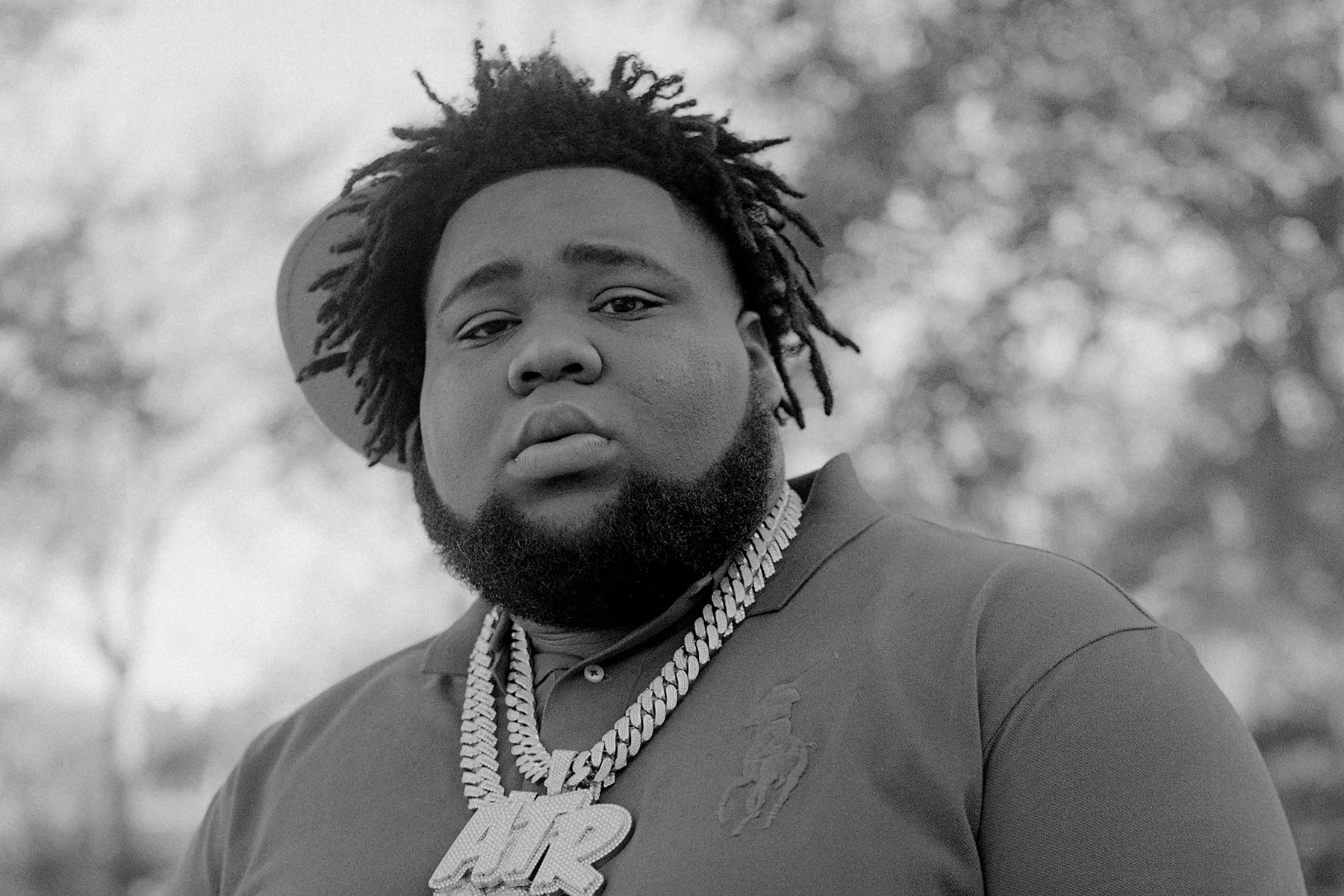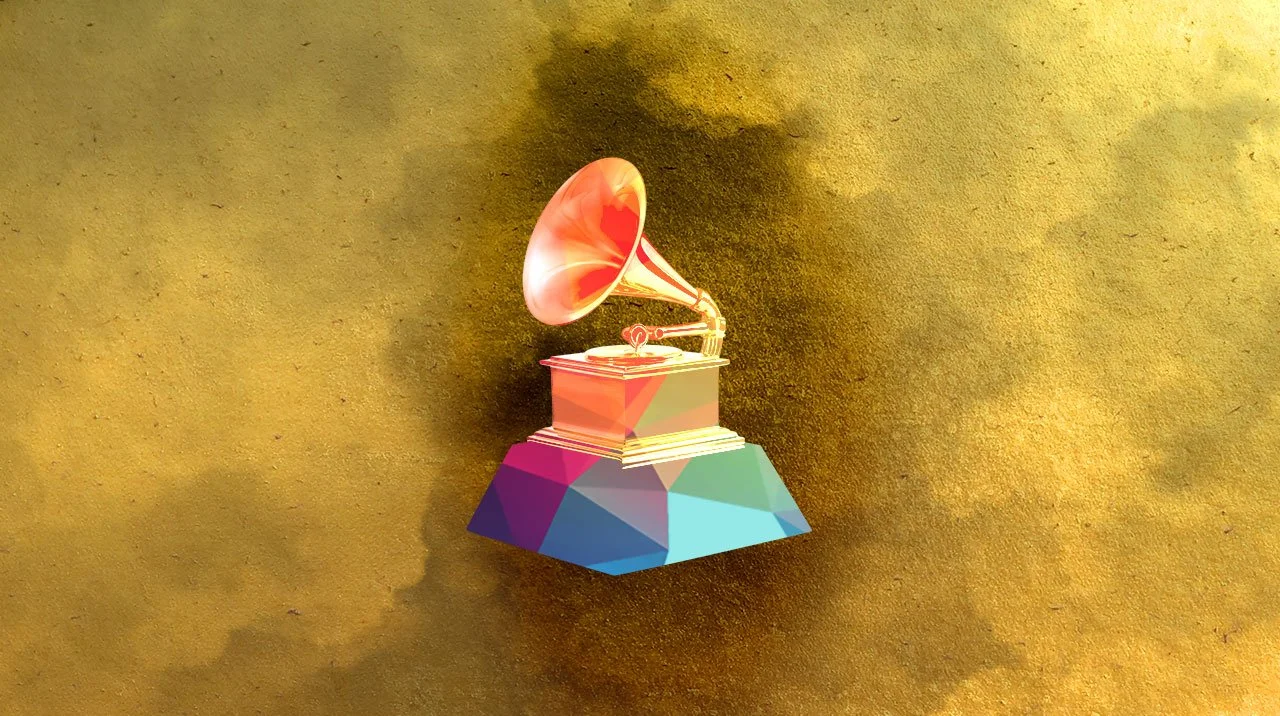Symbolyc One on Persistence, Consistency, and Leaving Nothing Unheard
Larry D. Griffin Jr., or Symbolyc One (S1), is a triple Grammy-award winning, multi-platinum selling producer who has worked with Eminem, Kanye West, Jay Z, Drake, Madonna, and Gladys Knight, among countless other musical heavy weights.
Recently, S1 made his beats available exclusively on Airbit, and we sat down with him to discuss why, at the height of his career, he chose to put his beats online, how he got started in music, and how he maintains steady momentum in his career.
With a career spanning over two decades, S1 is now a superstar producer with a fanbase built on his own artistry and talent, beyond that of the legendary artists he’s worked with. But like all producers, he didn’t start at the top. He doesn’t come from a musical background. He had no family connections to give him a leg up. How he got to where he is, and what keeps him going is the kind of inspirational story that could make even the greatest skeptic believe in destiny, and the power of purpose.
From gospel to rap
Growing up in Waco, Texas, S1 was mesmerized at an early age by the musicians at his church. “I was infatuated with hearing different chord changes, and how the organ player would react with the drummer and the guitarist,” he says. Eventually, he started taking piano lessons, and wound up playing for the Sunday school. Later, he joined his junior high school band, playing alto saxophone. These childhood experiences were his introduction to musical theory, but “it wasn’t until college that I was introduced to this whole other world of rap,” he says. His cousin, who had long been freestyling, exposed S1 to the artform by association, and together they formed a group called Symbolyc Elementz, which became S1’s introduction to hip hop, and his first foray into writing songs. When they recorded demos, they would rap over other artists’ beats or instrumentals. “That’s when I started down this path of figuring out how people were making beats,” S1 says. “I started to research the equipment, the process, how artists were sampling, and chopping up breaks, so that I could make original beats for me and my cousin.”
What started as curiosity soon became a tireless passion. “We were really into perfecting our craft, doing it every day. Every weekend, instead of going out, we’d be over at our DJ’s house making demos. It got to a point where we were doing it so much, and putting ourselves out there, and the response was incredible.” He and his cousin lived off a diet of hip hop culture, consuming issues of RapSheet and The Source magazine, and listening to everything released by Nas, Biggie, WuTang, GhettoBoys, and the other artists featured in their pages. A section in The Source called Unsigned Hype covered emerging artists, and had written about Notorious B.I.G., Mobb Deep, David Banner, “and so many influential people before they became who they were,” S1 says. “So we sent our demo, and a few months later, we ended up in that section. That’s when we knew we could be something.”
He and his cousin expanded their group, and rebranded themselves as Strange Fruit Project. S1 produced and MC’d, and “slowly but surely we started to gain attention,” he says. Soon, they were touring with some of their favorite groups. Artists they admired, including Erykah Badu and QuestLove and The Roots, became fans of theirs. “That’s how we knew we were definitely on the path that we were supposed to be on.”
“Kanye’s loving your stuff. He just said he’s about to change your life.”
Over the next decade, S1 continued developing his music career, while also working a full-time job and raising a family. At one point, he knew he had to take the leap of pursuing music full-time, and with his wife’s support, he quit his job. “That eliminated my comfort zone, so I knew I had to make it work,” he says. In 2009, he received a call from rapper/songwriter Rhymefest, who had recently bought a few of his beats. “He said he was in the studio with Kanye [West], and he’s like, ‘Yo, send me some beats over, I’ll play them for him if I get the opportunity.” Two weeks later — at which point S1 had assumed Kanye hadn’t been interested in the beats he’d sent — he received a text from Rhymefest: “Kanye’s loving your stuff. He just said he’s about to change your life.”
A few days later, S1 received an email from West’s manager that told him to get to an airport, as they needed him in Hawaii A.S.A.P. That trip, working with West in the studio, lasted for two weeks. “I’d already had lots of opportunities that I thought were going to be my big-break moment,” S1 says. “So when I was in Hawaii, I kept hoping this would not be a situation where nothing really happens or comes from it.” When he returned to Texas, he decided his connection with Kanye would be his primary focus. “I sent him beats every day,” he says. “Kanye would respond with, ‘Hold this one for me, hold this one. Hold these two.’ Then he told me to come back to Hawaii so he could track all these beats.” That’s when he learned that he’d be co-producing West’s first single “Power,” off the album My Beautiful Dark Twisted Fantasy, which would go on to win the Grammy for Best Rap Album.
Soon, S1 would join the production team of West’s label Very G.O.O.D. Beats, would tour the world with them, and, one thing leading to the next, would go on to work with pretty much everyone in hip hop, from Beyoncé to Drake, Talib Kweli to 50 Cent, Common to Madonna, and so many others.
Now, having won two more Grammys (for songs on Eminem’s The Marshall Mathers LP 2 and Kirk Franklin’s Long Live Love), S1 seems to be at the top of his game. But with a foundation in faith, dedication, consistency, and purpose, it’s likely that his game has no limit.
Persistent and consistent
To producers just getting started, or those feeling they may have hit a stride, but are worried whether it will last, S1 has a bit of advice: “Just because you can’t see things happening, doesn’t mean they’re not happening. In the 13 years before working with Kanye, I had a lot of failures and a lot of mishaps, but all of those things were preparing me for that particular moment,” he says.
The biggest piece of advice he has for producers at any level is to not focus on the inevitable “no’s.” As is true for most creatives, S1 explains that he could look back at old rejection emails, or albums he didn’t get placed on, or any other number of potential successes that never materialized, but in retrospect he can see that none of those things kept him from building the incredible discography he has now, or the list of legendary artists he’s been able to work with. In fact, as he explains it, what led to such prolific work are the actions he took after each small win along the way. To creatives feeling discouraged, he says, “You just have to be persistent and consistent. I love to ask people facing doubt, ‘What if I would have thrown in the towel my twelfth year?’”
Today, S1 knows unequivocally that his purpose is to empower, motivate, and impact others. This sense of purpose drives him in every decision he makes, and is what led him to publishing his book Pray.Focus.Plan.Execute: a Memoir by S1 in 2020. It’s also part of what led him to developing a relationship with Airbit, after meeting founder and CEO Wasim Khamlichi. “I met Wasim, and man, we connected on a personal level. I think it’s just because of his heart, and that he’s just a good-spirited dude, conversations that we would have would just lead to us working together in a constant progression.”
Collaboration is a cornerstone of S1’s passion for and success in music, and is what draws him to the Airbit community. From mentoring and inspiring producers at the Airbit Academy Music Producer Retreat in the United Kingdom, to talking through his career highs and lows on the Freegame Producer Podcast, S1 is always finding ways to help strengthen the Airbit family. “It’s so much easier to accomplish a goal when you can collaborate with others and build a community of creatives all supporting each other and moving together toward a mutual goal,” he says, “And that’s exactly what I see with Airbit.”
Die empty
Another cornerstone of S1’s success is his incredible output. “I make so much music,” he says. “I’ll probably have five to ten major placements a year, however, I’m creating five or six hundred beats and songs a year.” Recently, he decided to make some of his production, which typically sits on his hard drives, available for purchase exclusively on Airbit. “There’s a saying I love: ‘Die empty,’ which basically means don’t leave anything unheard. This is just another avenue to be able to share my art with the world.”
S1 compiled a Spotify playlist of his discography, exclusively for our audience. Find that below, and be sure to check out his Airbit Exclusives beat store.














